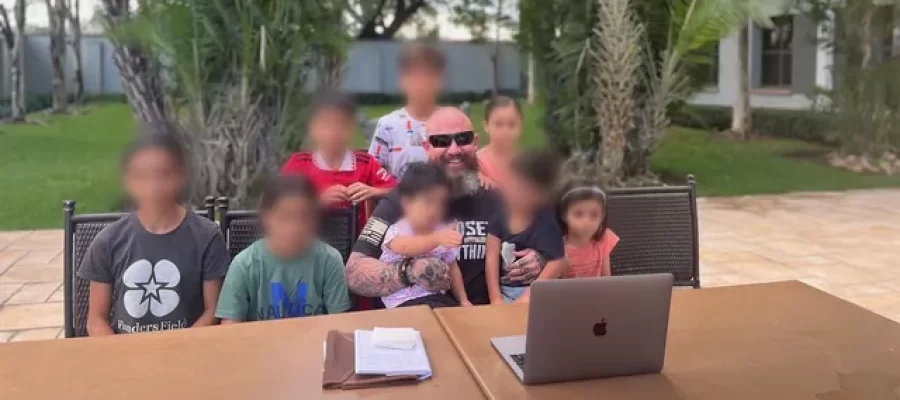U.S. veteran and pastor Jonathon Alcocer recently shared his remarkable story with Fox News Digital, recounting his efforts to bring nearly two dozen endangered Afghans back to the United States. Alcocer described his journey as a testament to the “grace of God” that allowed him to successfully navigate the challenges and secure safety for these individuals.
In February 2023, Alcocer, accompanied by two other Americans, arrived in Zimbabwe to meet the group of 22 Afghans who were fleeing the Taliban. These Afghans had been at risk due to their support of U.S. personnel before the withdrawal from Afghanistan. The Taliban had issued orders in January for local officials to compile kill lists of former Afghan military and government personnel. Out of the 22 Afghans, four were special immigrant visa applicants who had been stuck in Afghanistan, waiting for their cases to be processed for years. The group included 11 children, ranging in age from 6 months to 15 years old.
After arriving in Zimbabwe on traveler visas on January 21, the Afghans spent a week decompressing at a safari park. They had been confined to Afghan safe houses for 18 months due to their high-level positions in the former government, making them targets for reprisal killings by the Taliban. The objective of their meeting with the American handlers was to travel by bus to the South African border, where they planned to claim asylum. The journey was funded and organized by The Lifeline Foundation, a nonprofit organization, with the hope of establishing a safe pathway for other at-risk individuals seeking to escape Afghanistan.
However, their plans took a sharp turn when South African officials denied entry to the bus four days later. Alcocer stated that South Africa was found to have violated international law by refusing to grant asylum to the refugees. Unfortunately, the perception of Afghan individuals made it difficult for them to find assistance. As a result, Zimbabwean officials directed the bus driver to park in a remote area between Zimbabwe and South Africa. Passports were confiscated, and over the next three days, adults in the group were interrogated. The bus ran out of gas, and the passengers endured extreme heat without air conditioning, along with a lack of food and water. Alcocer described the conditions as “nasty.”
Eventually, the group was transferred to a smaller bus with a new driver, who, along with officials, subjected them to psychological pressure and inappropriate behavior. Children were not allowed to leave the bus for bathroom breaks, resulting in distressing conditions for the young ones. The ordeal lasted for approximately six and a half hours, during which the passengers were subjected to discomfort and humiliation.
The group was then taken to police headquarters and later to an immigration building, where they were given a limited time frame to leave the country. Despite arranging alternative means of transportation within the given timeframe, Zimbabwean officials reduced the timeline further, making compliance impossible. Subsequently, all three Americans, including Alcocer, were charged with 22 counts of human trafficking, carrying a potential sentence of two to three years. The situation finally de-escalated when officials from the U.S. Embassy intervened, leading to the charges being dropped. However, the group was detained in a detention cell in the basement of the airport before being allowed to depart the following day.
During their confinement, the detainees faced harsh conditions, with limited access to food and water. Photographs provided by Alcocer showed bare mattresses, piles of used electronics, and stacks of paperwork containing personal information. Insects infested the cells, and the toilets were dirty and flooded. The group was only released moments before boarding their flights to Zambia, and their passports were returned.
When asked about Alcocer’s allegations, a State Department spokesperson confirmed that U.S.





